How to become a groundsperson: a guide to kickstarting your career
Perhaps you’re thinking about what you’d like to do when you leave school – or maybe you’re looking for a change in career?
Well, a world awaits in the groundscare sector and we’re here to tell you all about it!
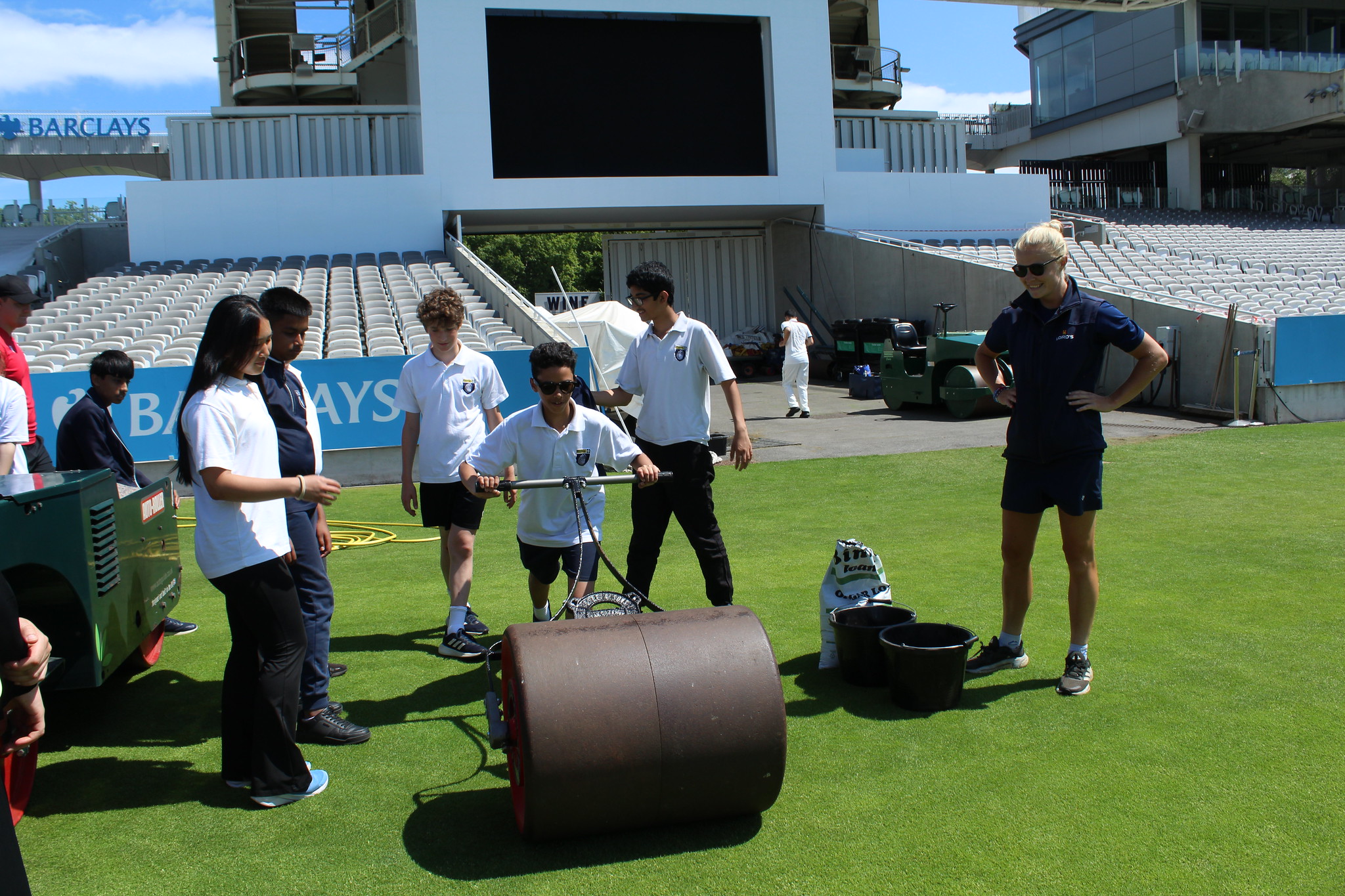
What does a groundsperson do?
A groundsperson quite simply makes sport possible!
There are many varied and rewarding roles within the sector which give people who love sport and outdoor activities the opportunity to work in a variety of settings like iconic sports arenas, schools, colleges and universities, parks and estates, as well as across local community sports facilities.
Groundskeeping duties vary depending on the type of setting. However, turf surface maintenance is the primary responsibility for most groundspeople.
Groundspeople are typically employed by organisations that manage public green spaces and leisure facilities such as councils, local authorities, schools and colleges, or contractors.
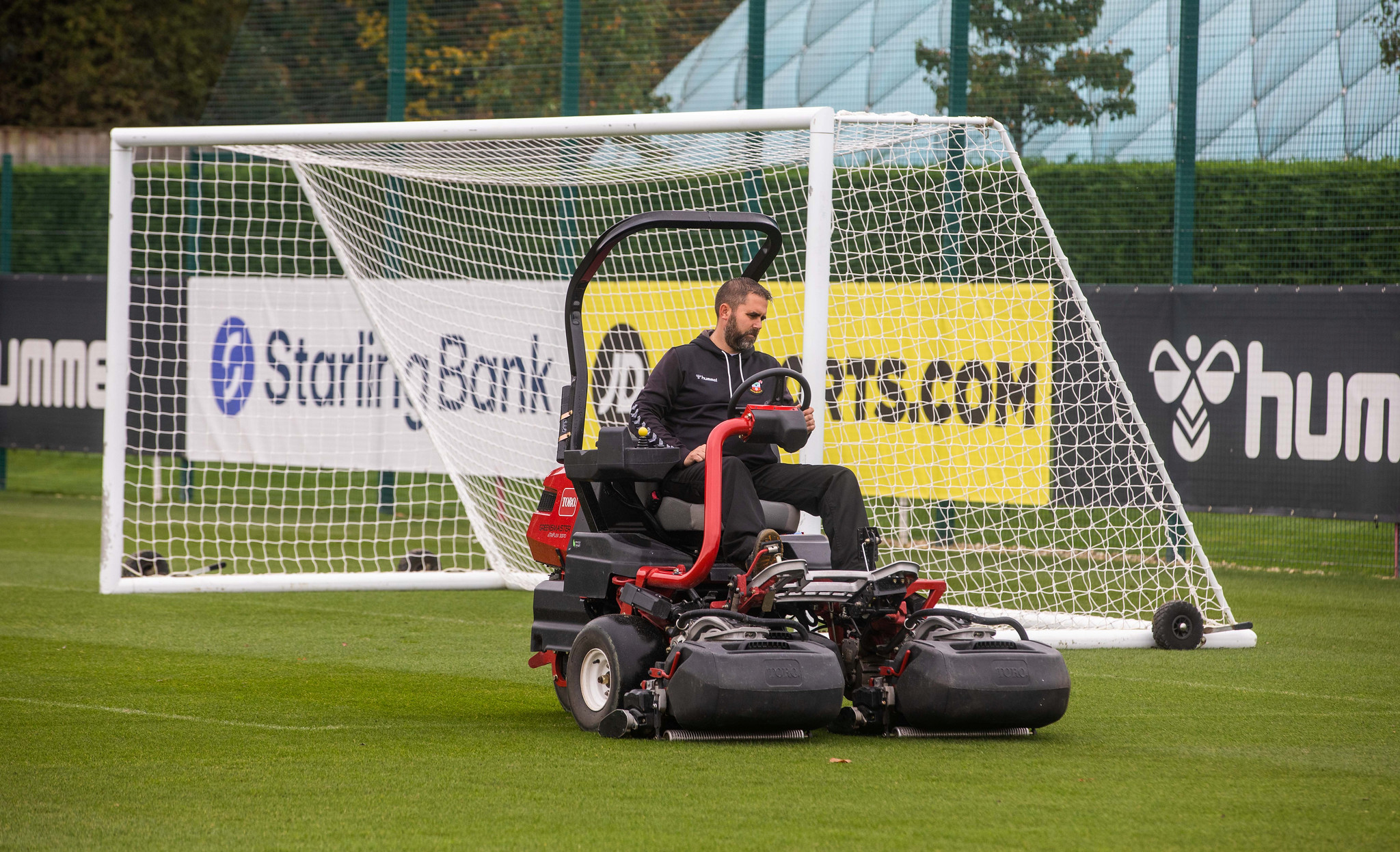
If you’re interested in pursuing a career working at a sports ground, there are a number of varied venues across the UK and Ireland covering cricket, football, tennis, hockey, rugby and bowls. They range from local leagues and local authority run facilities, ranging up to private grounds such as Premier League sports clubs and national venues.
Key responsibilities, depending on the setting, may look like maintaining the quality of playing surfaces, pitch marking, mowing, aerating, managing irrigation systems, landscaping, grounds general maintenance, and sometimes even snow clearing and debris collection.
Why should I consider it?
The holy grail when it comes to work is to find a job you enjoy – the phrase: find a job you love and you’ll never work a day in your life is something we all seek. And the statistics speak for themselves here.
The Grounds Management Association (GMA) – the UK’s leading membership body dedicated to supporting grounds staff – reports that its recent survey of over three hundred grounds staff and volunteers show high levels of job satisfaction and fulfilment, with 63 percent saying they “love” their job, and almost all (90 percent) report being passionate about the sector.
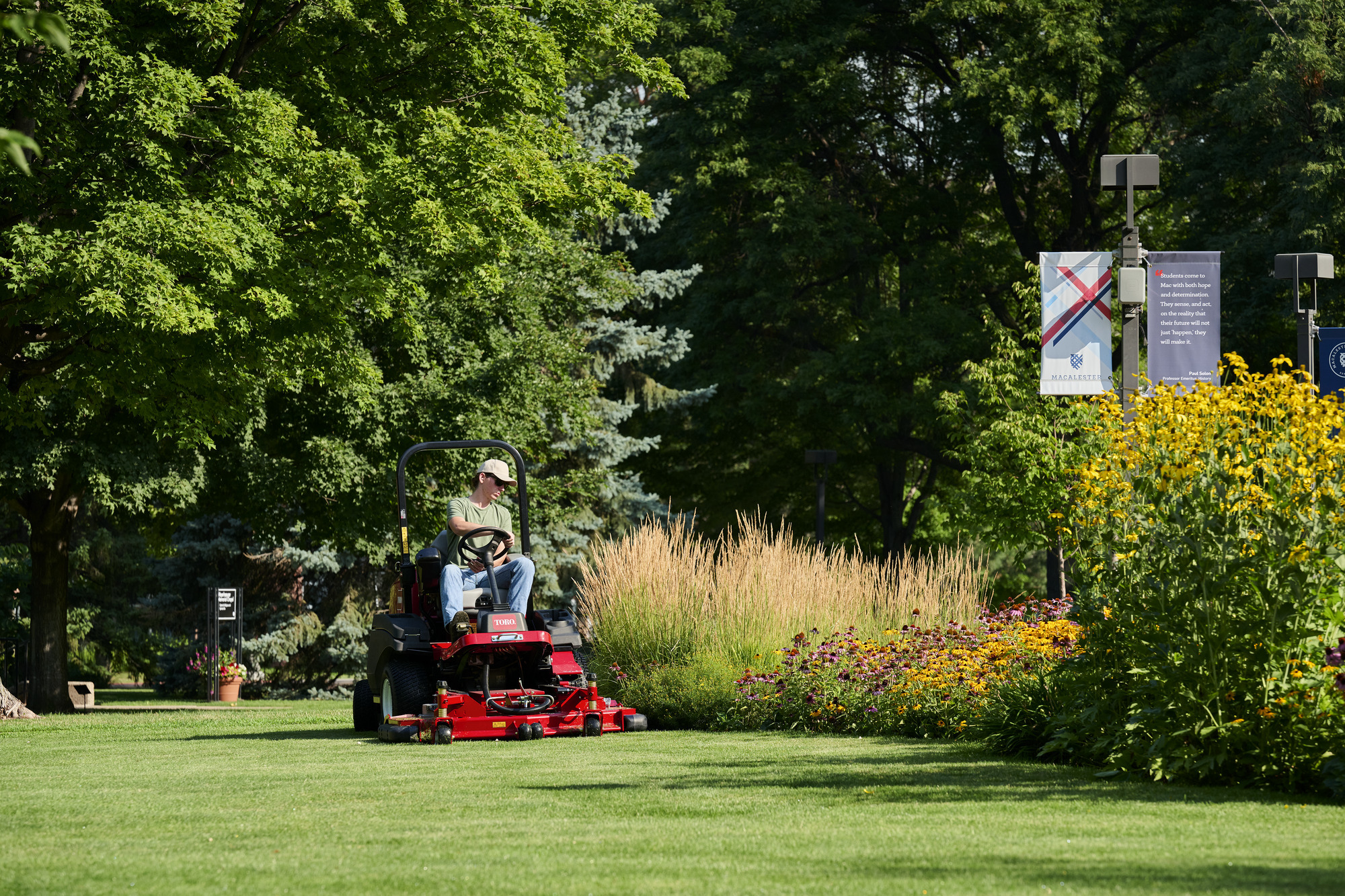
It goes on to say that people with jobs in the outdoors, including grounds staff, get greater fulfilment from their roles, with 77 percent saying they feel rewarded and a strong sense of achievement at the end of each day. This is compared to 47 percent of people working behind a desk. The research further highlights that those working indoors or behind a desk feel a greater negative impact on their physical (43 percent vs 35 percent) and mental health (50 percent vs 18 percent), compared with those who work outside.
Is it right for me?
No formal qualifications are required but the following attributes and skills are seen as desirable in the industry according to the National Careers Service:
- Training to operate and control equipment
- To be thorough and pay attention to detail
- The ability to work well with others and with your hands
- Customer service skills
- A valid driving licence
- Ambition and a desire to succeed
- Physical skills like movement, coordination and dexterity
- The ability to use, repair and maintain machines and tools
- To be able to carry out basic tasks on a computer or hand-held device
But above all, you’ll need to have the right attitude. If this describes you, read on to find out what your first role in the industry might look like.
Why choose a career in groundscare?
It may be easier to get into groundscare than you think. Developing the workforce is a priority for the industry, and there is a drive to inspire, engage, and cultivate the next generation of grounds management professionals.
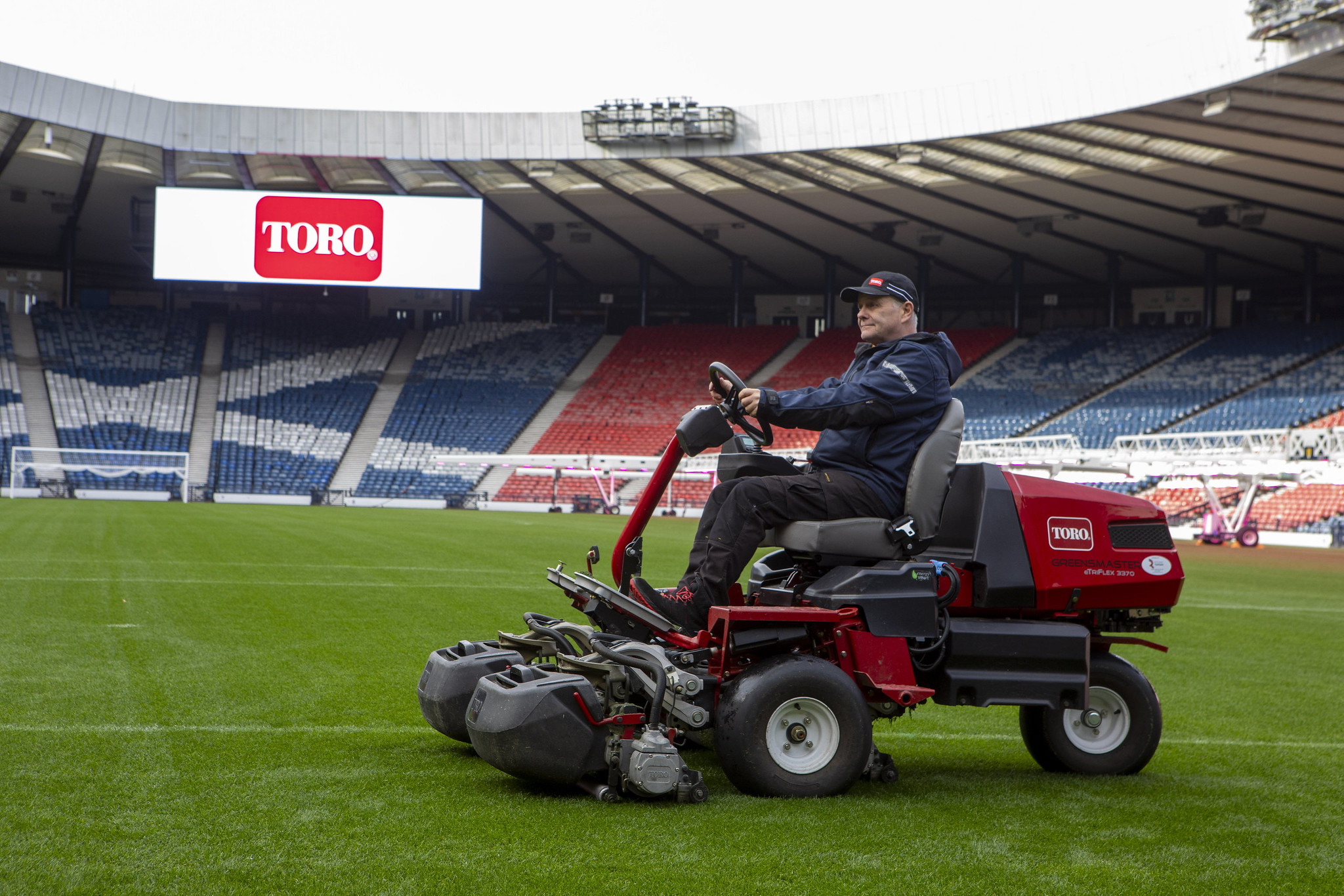
There’s even a dynamic initiative aimed at inspiring and nurturing the next generation of grounds professionals – the GMA’s NextGen whose job it is to ensure a vibrant future for grounds management by attracting and engaging young people, including those still in school and those at the start of their careers, by showcasing the diverse and rewarding career opportunities available in grounds management.
Thanks to the NextGen, which is sponsored by Reesink, events like Schools Into Stadia are giving the next generation hands-on experience of what goes into maintaining the playing surfaces at elite sports venues.
Meg Lay, Co-Chair of NextGen and Groundsperson at Lord’s cricket ground, advises young people to: “Just do it. Volunteer at your local sports club. Sign up to some online courses through the GMA website. Ask a ground if you can volunteer for a match day. Or if you see a job, you like the look of, just apply. Don’t be deterred by a lack of experience.
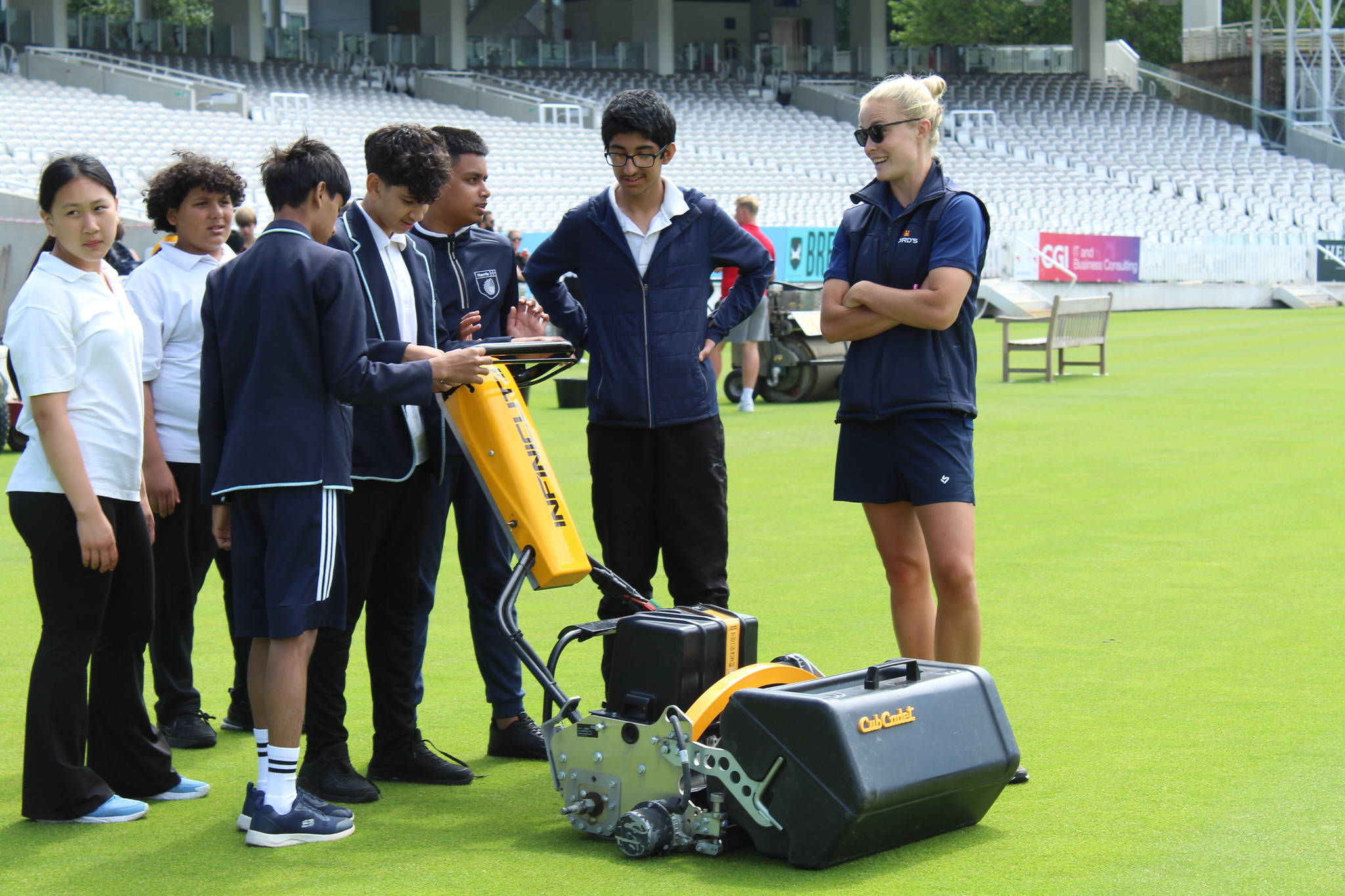
“Passion, attitude, and being a great team member are what you need to succeed in this industry,” she continues. “Technical knowledge is important, but can be taught.”
What your first role might look like
Working under a Head Groundsperson or Supervisor, likely in an Assistant Groundsperson position or other junior position, you will be learning industry best practices, the use of equipment and machinery, and site standards. For example, you may be working on grass, hybrid, or artificial sports surfaces, requiring you to learn the difference in maintenance practices.
If you are undertaking an apprenticeship at the same time, you will spend approximately 20 percent of your working week engaged in online training sessions or in-person classes.
You’ll need to be prepared for potential early starts and long hours, and taking on a wide variety of basic tasks aside from turf management, such as tool and machine maintenance and cleaning, and sports field set up.
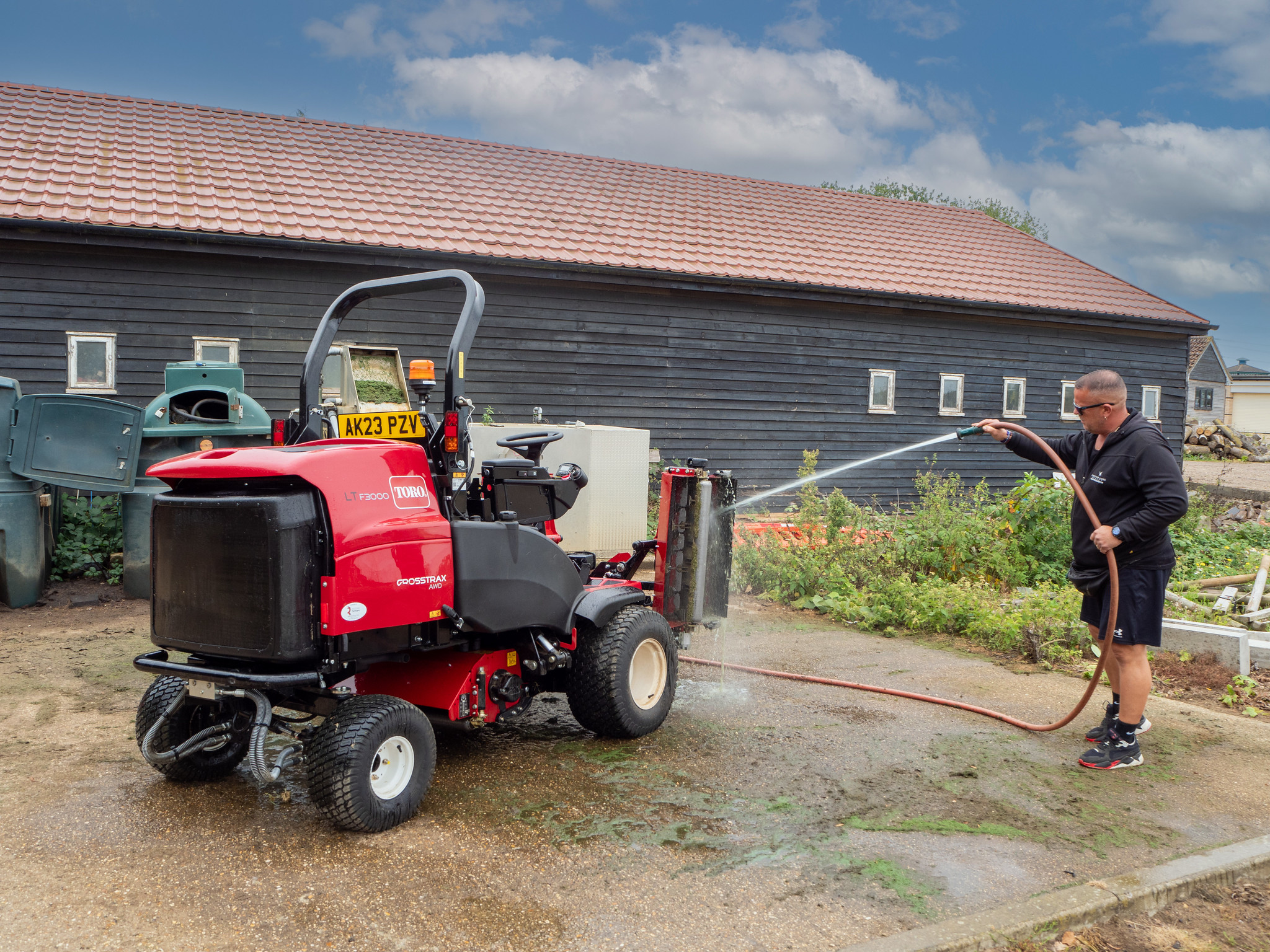
What’s not to love?
Groundskeeping is great for people and especially young people who enjoy working outdoors and staying active, being involved in a variety of physical outdoor tasks. The satisfaction you can get from making a sports ground look its best is something you only get with this job, and the potential to be involved in high-profile sporting events makes this a unique opportunity.
Getting hands-on with new tech such as autonomous mowers, opportunities to support sustainability initiatives, and experiencing the camaraderie within a grounds team, to name a few, are all reasons why you might consider choosing this as a career.
Insights from the NextGen team reveal why it means so much to them and it could be the same for you!
Meg says: “It almost feels like I’m playing a team sport, but getting paid to do it every day. I’m outside, doing physical activity with my best friends, and we get to watch cricket. What’s not to love?!”
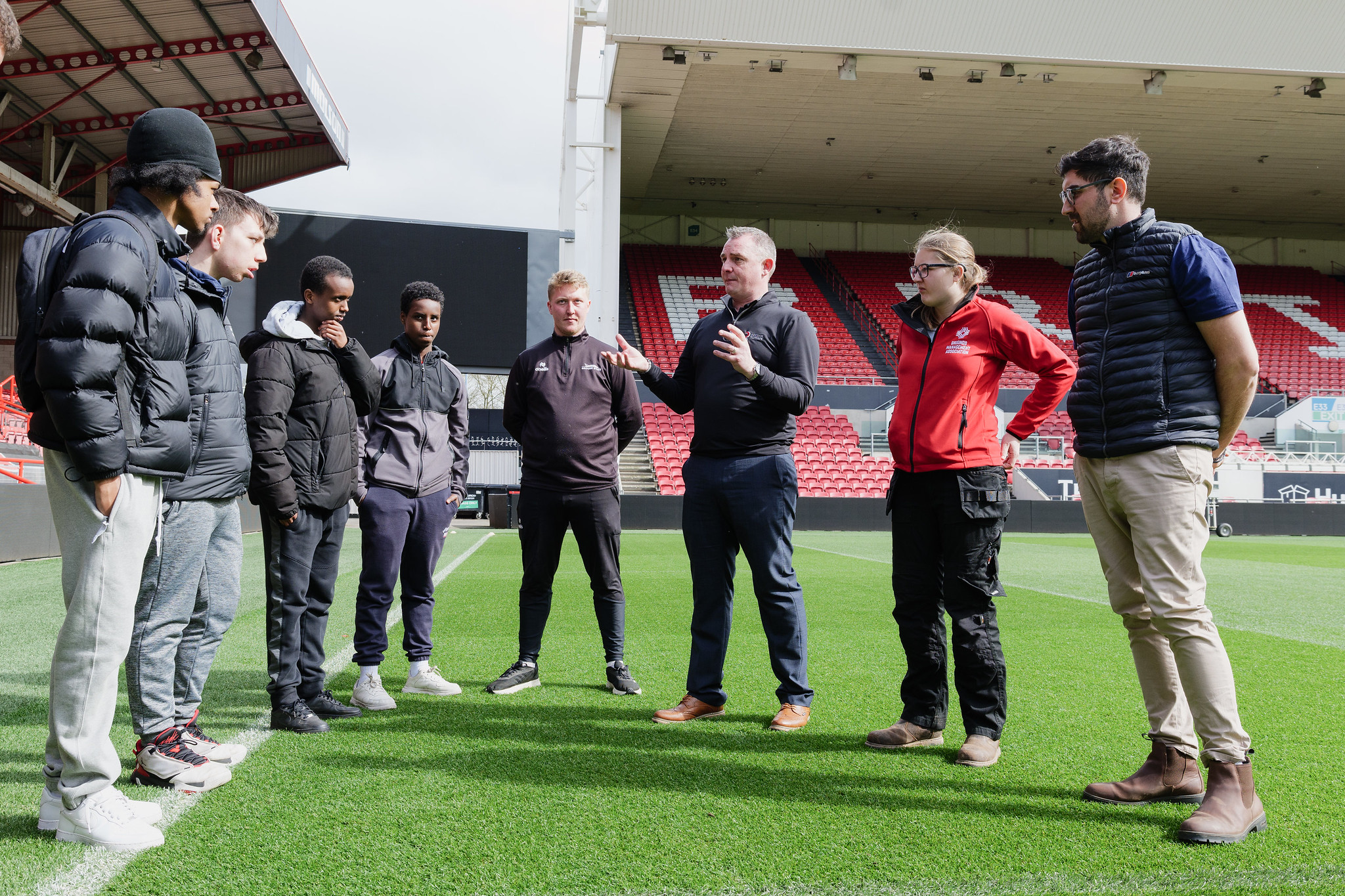
While, for Beth Gibbs, Groundsperson at Wellington School it’s taking great pride in her work and seeing others enjoy using the pitches she’s worked on. Working for himself after founding his own grounds company, Cain Markings, Sam Cain says the best thing his career has given him is having the freedom to set his own schedule.
Ashton Gate Stadium’s Deputy Head Groundsperson, Jack Langley, stresses how working hard can bring great opportunity, explaining that he “applied for a job as an assistant grounds person with no prior experience and got the job,” and has since then worked his way up to the role he holds today!
Becoming a groundsperson: training courses and qualifications
There are several routes you could look to take to get into the industry, including volunteering (match day at your favourite football club?). However, you’ll be most desirable to an employer if you have earned relevant qualifications and undertaken training.
Courses vary, but most can be obtained by enrolling at a college, doing an apprenticeship, or taking part in industry-recognised courses and qualifications.
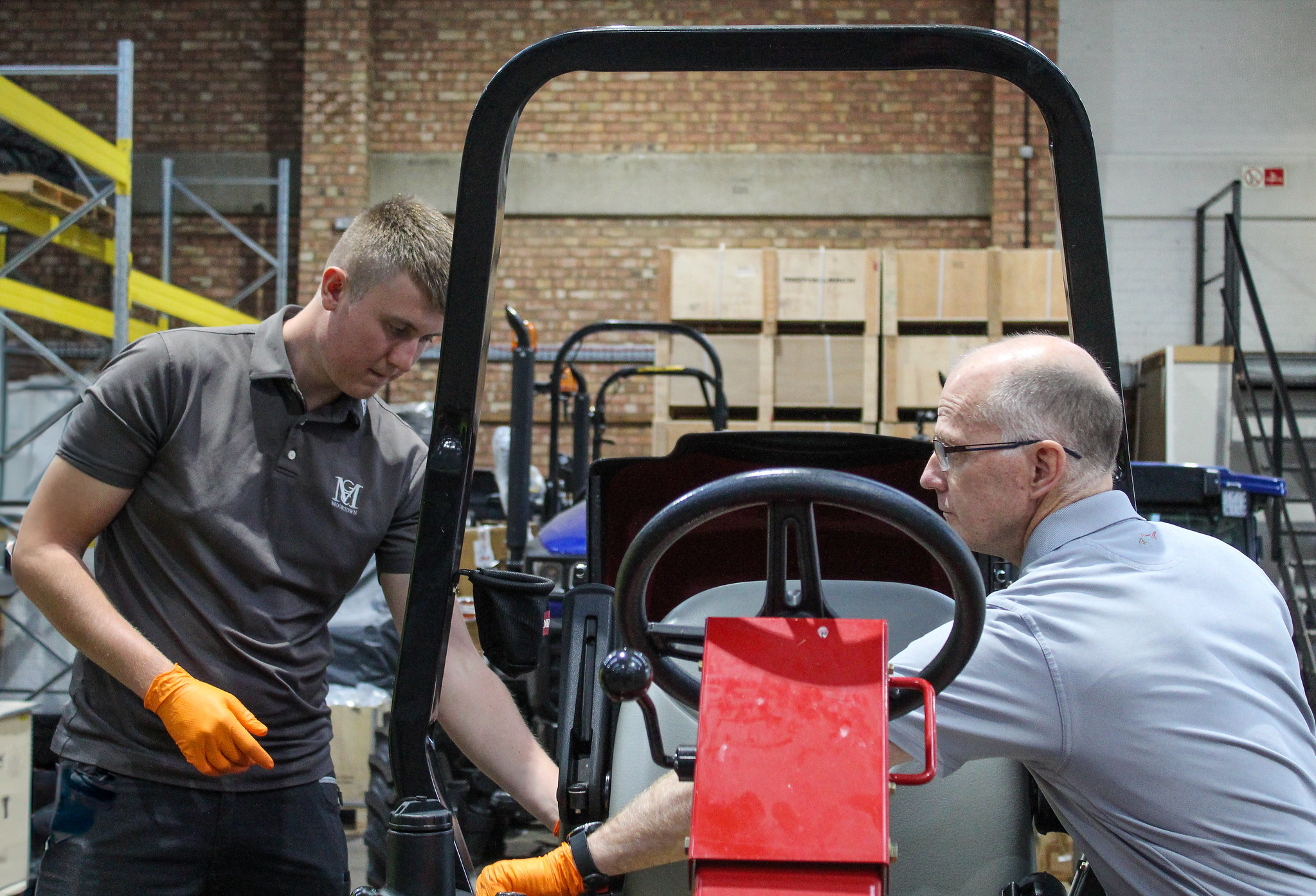
Top courses and apprenticeships to consider
As we’ve mentioned, the right attitude and positive outlook can be enough to get your foot in the groundscare door but there are relevant college courses that will stand you in good stead too.
The Level 2 GMA Technical Certificate in Turf Surface Maintenance and the Fine Turf and Lawn Maintenance course at specialist agricultural colleges such as Myerscough College in Lancashire or Capel Manor in Enfield are good and there are others that can be studied at home.
You could also consider the following apprenticeship courses: Level 2 Sports Turf Operative and Level 3 Advanced Sports Turf Technician. Apprenticeships involve a mix of classroom learning and on-the-job training if you want to get hands-on experience right away.
The GMA offers several courses in sports turf maintenance, including Level 1 Football Grounds maintenance, Level 2 Effective Maintenance of 3G Pitches, and Level 3 Winter Pitches (Advanced Turf Culture). Similarly, Lantra offers courses for Sports Pitch Maintenance, Synthetic Sports Surfaces Maintenance, and Turfgrass Irrigation Technician to name a few.
These courses are suitable for beginners and seasoned professionals, so they are a great option for those wanting to transition from a related job.
Your next steps
According to the GMA, 73 percent of outdoor workers view their current role, and its future opportunities, as a career for life. Why not join them?
If you’re considering a career in groundscare – or even greenkeeping or golf course management – Reesink Turfcare can support your journey with professional training courses and informative resources covering evolving industry trends. For more information, get in touch with us on 01480 226800, email info@reesinkturfcare.co.uk, or fill out a form here.